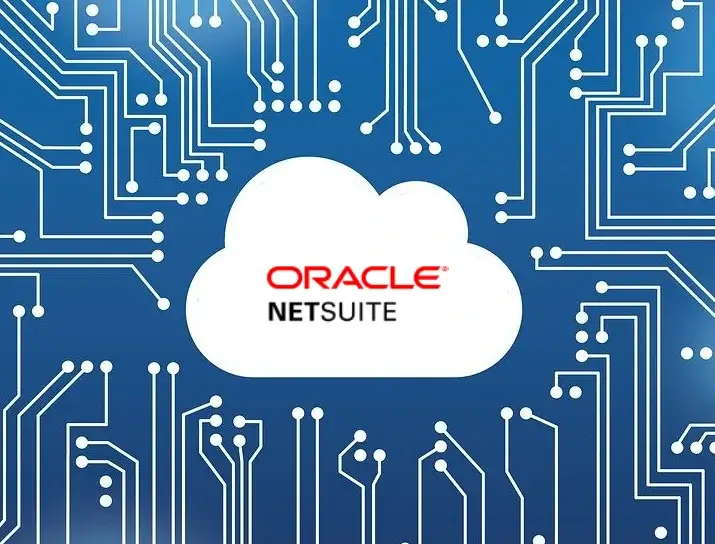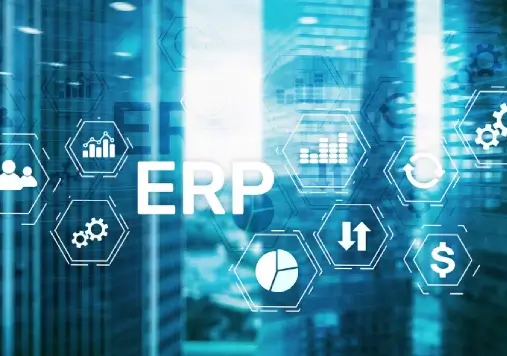What are ERP systems?
ERP systems play a crucial role in today’s accounting landscape, helping businesses streamline their financial processes and improve efficiency.
ERP, or Enterprise Resource Planning, is a comprehensive software solution that integrates various business functions, including accounting, finance, human resources, and inventory management. It offers a centralized platform for managing and automating crucial business processes.
With an ERP system, accounting firms can eliminate manual data entry and reduce errors, resulting in more accurate financial reporting. It also provides real-time visibility into financial data, facilitating informed decision-making and strategic planning.

What is Cloud ERP?
A cloud ERP (Enterprise Resource Planning) system is a software solution that integrates various business functions into a single, unified platform and is hosted on remote servers accessed via the internet.
Unlike traditional on-premises ERP systems that are installed and maintained on a company’s local servers, cloud-based ERP solutions are managed by third-party vendors and provided to businesses as a service.

What is On-Premises ERP?
On-premises ERP (Enterprise Resource Planning) refers to ERP software installed and maintained locally on a company’s hardware and servers, typically within the company’s premises or data center. Unlike cloud-based ERP, which operates over the internet and is hosted and managed by a third-party provider, on-premises ERP software is managed entirely by the organization’s IT department or designated personnel.
Cloud ERP vs. On-Premises ERP
When comparing cloud-based and on-premises ERP systems for accounting, several factors should be considered based on business requirements.
Cost implications
- Cloud ERP systems generally have lower upfront costs and predictable subscription-based pricing models, making them more affordable for small and medium-sized accounting firms.
- On-premises ERP systems require significant upfront investments in hardware, software licenses, and ongoing IT maintenance.
Data security
- Cloud ERP systems, such as Oracle NetSuite, prioritize data security and implement robust measures to protect sensitive financial information.
- On-premises ERP systems provide more control over data security but require the company to take responsibility for implementing and maintaining security measures.
Scalability
- Cloud ERP systems offer greater scalability and flexibility, allowing accounting firms to easily adjust system resources based on evolving needs.
- On-premises ERP systems have limited server capacity and may require additional hardware investments for expansion.
Accessibility
- Cloud-based ERP systems provide remote access to accounting data, enabling professionals to work from anywhere at any time.
- On-premises ERP systems require physical access to the company’s infrastructure, limiting remote work capabilities.
Considering these factors, it’s evident that cloud-based ERP systems, such as Oracle NetSuite, offer numerous advantages in cost-efficiency, scalability, data security, and accessibility, making them ideal for modern accounting firms.

Oracle NetSuite
Oracle NetSuite Cloud ERP is a comprehensive enterprise resource planning (ERP) solution designed to streamline business processes and enhance operational efficiency.
As a cloud-based platform, it offers scalability, real-time insights, and flexibility, catering to businesses of all sizes and industries. With modules for financial management, customer relationship management (CRM), inventory and order management, and more, NetSuite helps organizations unify their operations, improve decision-making, and drive growth through a single, integrated system.
With its comprehensive financial management tools, advanced analytics, scalability, and robust data security, Oracle NetSuite is an excellent choice for modern accounting firms.
Conclusion
Selecting the appropriate ERP system is a pivotal decision for accounting firms seeking to enhance their operational efficiency and drive growth. Cloud ERP systems like Oracle NetSuite offer compelling benefits, including lower upfront costs, superior scalability, enhanced data security, and the flexibility to support remote work. On-premises ERP systems, while offering greater control and customization, entail significant initial investments and ongoing maintenance challenges.
SmartBooqing and Oracle NetSuite’s partnership exemplifies the powerful synergies achievable through cloud ERP solutions. SmartBooqing, with its automated bookkeeping capabilities, seamlessly integrates with Oracle NetSuite, providing an enhanced financial management experience. This partnership enables accounting firms to automate routine tasks, reduce errors, and gain real-time financial insights, further elevating their operational efficiency and strategic decision-making capabilities.



